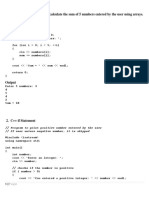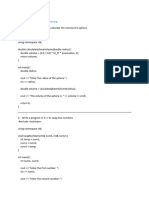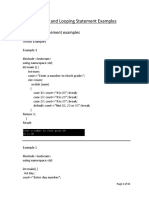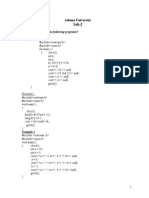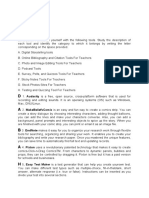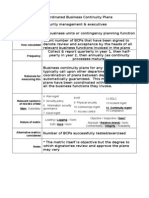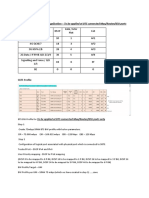0% found this document useful (0 votes)
11 views39 pagesC++ Important Codes
The document contains a collection of important C++ programs demonstrating various concepts such as checking even/odd numbers, vowel/consonant identification, multiplication tables, factorial calculation, simple calculators, and pyramid patterns. It also includes examples of string manipulation, pointer usage, age calculation, and array initialization. Each example is presented with code snippets and comments to explain the functionality.
Uploaded by
qureshizada852Copyright
© © All Rights Reserved
We take content rights seriously. If you suspect this is your content, claim it here.
Available Formats
Download as PDF, TXT or read online on Scribd
0% found this document useful (0 votes)
11 views39 pagesC++ Important Codes
The document contains a collection of important C++ programs demonstrating various concepts such as checking even/odd numbers, vowel/consonant identification, multiplication tables, factorial calculation, simple calculators, and pyramid patterns. It also includes examples of string manipulation, pointer usage, age calculation, and array initialization. Each example is presented with code snippets and comments to explain the functionality.
Uploaded by
qureshizada852Copyright
© © All Rights Reserved
We take content rights seriously. If you suspect this is your content, claim it here.
Available Formats
Download as PDF, TXT or read online on Scribd
/ 39



